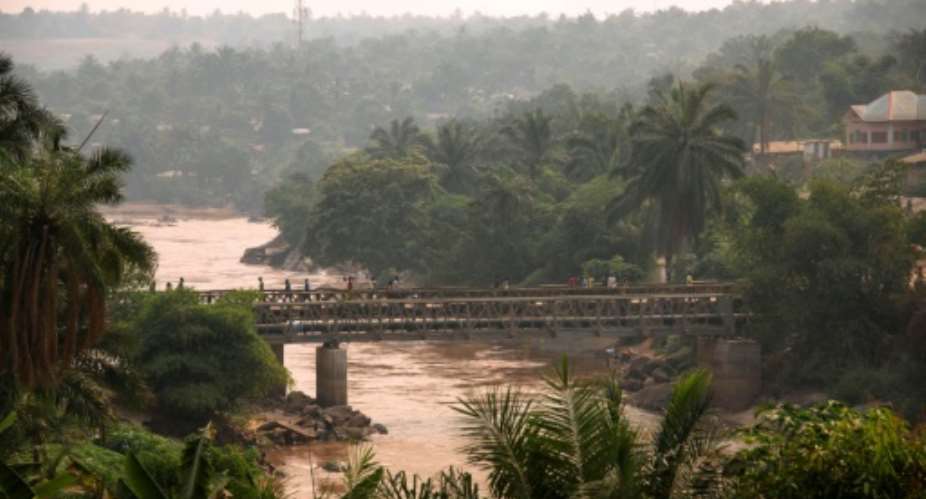Kananga (DR Congo) (AFP) - President Joseph Kabila on Tuesday accused international and religious groups of "knowingly spreading misinformation" about a conflict that has killed thousands, including two UN experts, over the last year in the volatile Kasai region of the Democratic Republic of Congo.
The violence in Kasai erupted last September when a tribal chieftain known as the Kamwina Nsapu, who rebelled against Kabila's regime, was killed. More than 3,000 people have died and 1.4 million displaced since, the Catholic Church estimates.
In one of his rare public speeches, Kabila visiting Kasai denounced the "duplicity and hypocrisy of certain compatriots, international and religious non-governmental organisations which, though they have seen this tragedy with their own eyes, having been victims in some places, have not had the courage to denounce the true perpetrators".
"Why did they knowingly choose misinformation?" he added.
Two UN experts investigating mass graves in Kasai were killed on March 12 in Bunkonde. Congolese authorities claimed they were victims of supporters of Nsapu. Four suspects are on trial at a military court in Kananga, capital of the vast and deeply poor region.
"There can be no peace or true reconciliation without justice," Kabila also said at the opening of a "peace" forum in Kananga, which was shunned by the opposition.
UN investigations
 More than 3,000 people have died and around 1.4 million fled their homes in the Kasai conflict, according to UN figures
More than 3,000 people have died and around 1.4 million fled their homes in the Kasai conflict, according to UN figures
In early August, UN investigators documented more than 250 executions by state agents, militias or rebels in Kasai between March and June. Congolese spokesman Lambert Mende said the testimony was "unfounded".
A report by Radio France International last week suggested that the two UN experts were victims of an ambush set up by double agents working for state security services. A senior official at the Congolese intelligence agency ANR condemned the report, calling it "immoral".
Meanwhile, eleven activists opposed to Kabila were arrested Tuesday while trying to organise a march in the country's northeast, police said.
The activists had planned a peaceful march in Bunia to mark the deaths of protesters killed by security forces a year ago. More than 50 people died protesting against Kabila on September 19 and 20, 2016, according the UN.
DR Congo has been going through a political crisis since last year after Kabila -- in office since he succeeded his murdered father in 2001 -- failed to stand down in December at the end of what was supposed to be his final mandate according to the country's constitution.
A deal was cut by the Kabila government and the opposition to hold elections by the end of this year, but no electoral calendar has been published so far, and there seems no sign of an end to the impasse as Kabila hangs on.





 We’ll no longer tolerate your empty, unwarranted attacks – TUC blasts Prof Adei
We’ll no longer tolerate your empty, unwarranted attacks – TUC blasts Prof Adei
 Bawumia donates GHc200,000 to support Madina fire victims
Bawumia donates GHc200,000 to support Madina fire victims
 IMF to disburse US$360million third tranche to Ghana without creditors MoU
IMF to disburse US$360million third tranche to Ghana without creditors MoU
 Truck owner share insights into train collision incident
Truck owner share insights into train collision incident
 Paramount chief of Bassare Traditional Area passes on
Paramount chief of Bassare Traditional Area passes on
 Two teachers in court over alleged illegal possession of BECE papers
Two teachers in court over alleged illegal possession of BECE papers
 Sunyani: Victim allegedly shot by traditional warriors appeals for justice
Sunyani: Victim allegedly shot by traditional warriors appeals for justice
 Mahama vows to scrap teacher licensure exams, review Free SHS policy
Mahama vows to scrap teacher licensure exams, review Free SHS policy
 Government will replace burnt Madina shops with a new three-story, 120-store fac...
Government will replace burnt Madina shops with a new three-story, 120-store fac...
